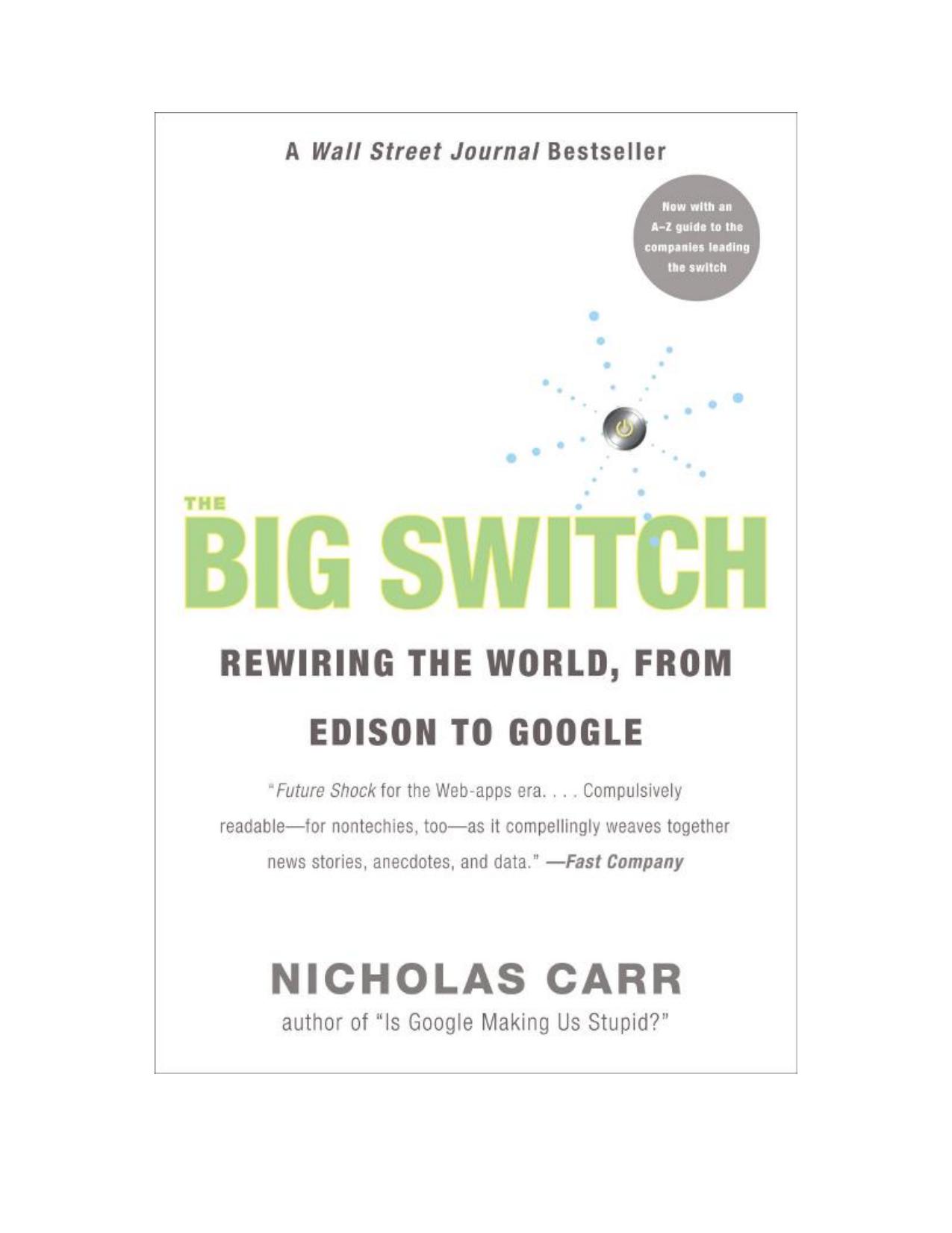The Big Switch by Nicholas Carr

Author:Nicholas Carr [Carr, Nicholas]
Language: eng
Format: epub, pdf
Publisher: W. W. Norton & Company
Published: 2008-09-14T17:00:00+00:00
THE NEW ECONOMICS of doing business online are a boon to consumers. What used to be expensive—everything from international phone calls to classified ads to video transmissions—can now be had for free. But there’s another side to the robotic efficiency, global scope, and increasing returns enjoyed by the new Internet companies. Each of these companies competes, after all, with old-line firms that have long employed and paid decent wages to many people. YouTube fights for viewers with television stations and movie theaters. Skype battles landline and mobile telephone companies for callers. Many of the classified ads that run on Craigslist would have otherwise appeared in local newspapers. Dozens of national and local dating services vie for customers with sites like PlentyOfFish. Given the economic advantages of online firms—advantages that will grow as the maturation of utility computing drives the costs of data processing and communication even lower—traditional firms may have no choice but to refashion their own businesses along similar lines, firing many millions of employees in the process.
We already see signs of the thinning out of the professional workforce in some information industries. As newspapers have lost readers and advertising revenues to Web sites, for instance, they’ve been forced to lay off reporters and other professionals. A study by the American Society of Newspaper Editors found that between 2001 and 2005 the newsroom staff of US papers declined by 4 percent, with a net loss of 1,000 reporters, 1,000 editors, and 300 photographers and artists. “Web 2.0 and the Net in general have been disasters for my profession,” says Philip Dawdy, an award-winning journalist for Seattle Weekly. “Newspapers are dying. Talented people are being forced into public relations work.”
In early 2007, the US Department of Labor released a revealing set of statistics on the publishing and broadcasting business as a whole. Employment in the industry had fallen by 13 percent in the six years since 2001, with nearly 150,000 jobs lost. These were years when many media companies, as well as their customers and advertisers, had been shifting from physical media to the Internet. Yet the report revealed that there had been no growth in Internet publishing and broadcasting jobs. In fact, online employment had actually dropped 29 percent, from 51,500 to 36,600, during the period. “The Internet is the wave of the future,” commented New York Times economics writer Floyd Norris. “Just don’t try to get a job in it.”
Markus Frind’s prediction that many traditional businesses will find it impossible to compete against extraordinarily lean Web operations may be coming to pass. As a result, we could well see a hollowing-out of many sectors of the economy, as computers and software displace workers on a large scale. Anyone employed by a business whose product or service can be distributed in digital form may be at risk, and the number of companies that fit that category is growing every year.
Of course, the displacement of workers by computers is nothing new, and it would normally be welcomed as a sign of a healthy economy.
Download
This site does not store any files on its server. We only index and link to content provided by other sites. Please contact the content providers to delete copyright contents if any and email us, we'll remove relevant links or contents immediately.
| AI & Machine Learning | Bioinformatics |
| Computer Simulation | Cybernetics |
| Human-Computer Interaction | Information Theory |
| Robotics | Systems Analysis & Design |
Algorithms of the Intelligent Web by Haralambos Marmanis;Dmitry Babenko(7879)
Hadoop in Practice by Alex Holmes(5672)
Jquery UI in Action : Master the concepts Of Jquery UI: A Step By Step Approach by ANMOL GOYAL(5527)
Life 3.0: Being Human in the Age of Artificial Intelligence by Tegmark Max(4534)
Functional Programming in JavaScript by Mantyla Dan(3733)
The Age of Surveillance Capitalism by Shoshana Zuboff(3442)
Big Data Analysis with Python by Ivan Marin(3165)
Blockchain Basics by Daniel Drescher(2906)
The Rosie Effect by Graeme Simsion(2729)
Test-Driven Development with Java by Alan Mellor(2695)
WordPress Plugin Development Cookbook by Yannick Lefebvre(2647)
Hands-On Machine Learning for Algorithmic Trading by Stefan Jansen(2566)
Data Augmentation with Python by Duc Haba(2548)
Applied Predictive Modeling by Max Kuhn & Kjell Johnson(2500)
Dawn of the New Everything by Jaron Lanier(2449)
Principles of Data Fabric by Sonia Mezzetta(2357)
The Infinite Retina by Robert Scoble Irena Cronin(2344)
The Art Of Deception by Kevin Mitnick(2312)
Rapid Viz: A New Method for the Rapid Visualization of Ideas by Kurt Hanks & Larry Belliston(2213)
